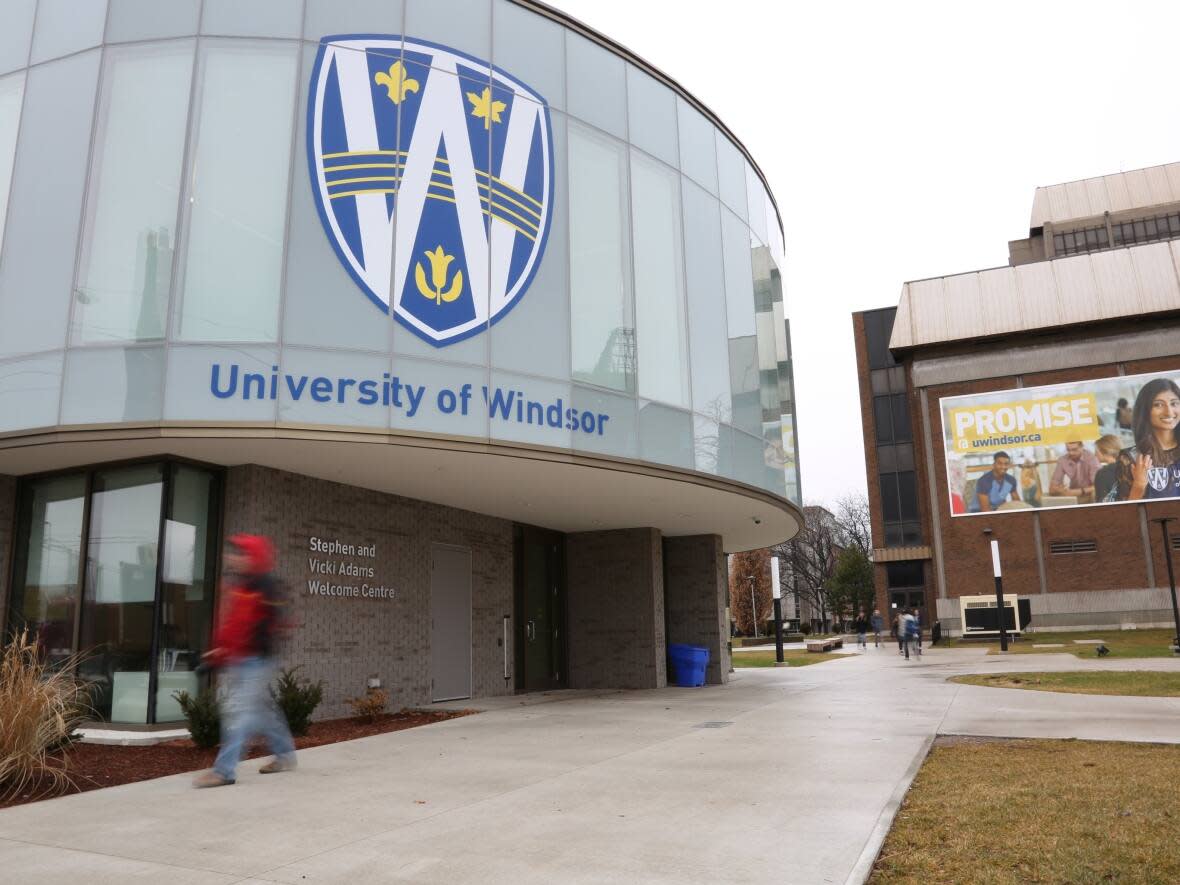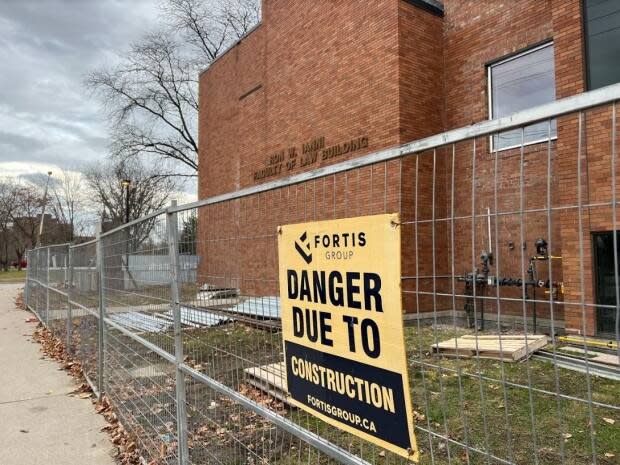Auditor general flags concerns over international student enrolment, finances at UWindsor

University of Windsor has committed to making changes after a financial review by the Auditor General of Ontario scrutinized the school's governance structure, financial planning and heavy reliance on international students from a few countries.
The Nov. 30 report, in which the Auditor General of Ontario (AGO) reviewed four universities across the province, provides 14 recommendations to the University of Windsor that range from tracking progress of international students post graduation to improving the structure of its board.
Despite the school taking in an increasing number of international students and gaining more revenue from them, the AGO found that those students have "consistently lower" graduation rates than domestic students.
But they had higher graduation rates of those at other universities audited by the AGO.
This past year, the AGO said that the majority of students were accepted from India and China. The report notes that this increases the risk of external factors, like a "global economic downturn or foreign policy shift," impacting the school's finances.
In an interview with CBC News, the University of Windsor's VP of finance and operations Gillian Heisz said that the school has already pinpointed 20 countries it hopes to recruit students from and has implemented certain strategies. But it said it likely won't see the benefit of these initiatives for a couple of years.

Over the last five years, the University of Windsor's international enrolment increased by 33 per cent, with its proportion of revenue from international students more than doubling from 9.6 per cent to 20.9 per cent.
At the same time, the AGO said that the university did not keep an up-to-date record of international students' post-graduate progress or location, which could help it "adjust its program offerings, improve its recruitment efforts and help in promoting the university."
Heisz said that this lower rate is specific to undergraduates, so they are improving supports within certain faculties.
"If you're a student in the faculty of engineering for example you can now access an international student expert right in your faculty, in your building. You can also access mental health support right in your building ... we're adding a lot of international student lounges," said Heisz.
She added that the university is also helping students through scholarships and bursaries.
Mohammad Shafkat Shahriar, a graduate international student at the university, said he's always felt well supported at the school, but that he was surprised to hear that the rates of graduation for international students was lower than others.
He also agreed that the school should better track student success post-graduation.

"If someone is tracking the international students success in future, obviously we as international students will feel at home here," he said.
"This will obviously invite a lot of international students toward Windsor in [the] future."
Based on these findings, the AGO recommended that the university:
Develop and apply strategies that will attract students from different regions.
Complete a financial analysis on the impact of the loss of students from certain regions.
Collect data on location, careers of international alumni and use it to better inform programming and recruitment.
Encourage recruiters through specific fees to target students with higher academic performance.
Financial plans needed: report
The audit also reviewed four major capital projects, one of which being the renovation of the university's law school. The report said the total cost is expected to be $35 million, but that the approved plan did not have a "financial cost/benefit analysis to justify the costs of the investment."
It said the analysis didn't consider if the investment would generate revenue to cover the cost or the university's ability to pay for the costs, "which would be expected considering the majority of the project is being funded by debt."
The university also recently spent $8.1 million on a building in downtown Windsor to expand its campus.
But the information presented to the board didn't consider when this would become "profitable."

Heisz said they take the points around financial documentation and planning "very seriously." But with the law building, she said historically they haven't addressed new revenue potential with renovation projects and that the building needed accessibility updates.
As for the new building, she said they did do a full financial plan and that the building will hold a program that will see "significant enrolment growth year over year."
Governance, Russian partnership flagged
As well the AGO noted that the university's Board of Governors is too big. Boards outside of universities have 14 to 16 members at most, the report said, but the University of Windsor's board has 32 members.
It also said that schools rank their board members' skill level in certain areas, but that the University of Windsor didn't consider competency in cybersecurity and that board members had limited or no expertise in the area of finance and accounting.
"Because boards are responsible for overseeing universities' financial operations ... the majority or near-to-all board members should be financially literate," the report states.
The university's partnerships were also reviewed and the AGO said one is "unfavourable to the university's reputation."
In July 2021, the university signed a five-year agreement with Sechenov University in Russia to collaborate on research, educational events and student and staff exchange programs.
Though nothing has yet happened between the two universities, the AGO said the agreement harms its reputation given the conflict in Ukraine and poses a cybersecurity risk.
Other recommendations to the university around these issues include:
Monitoring and following debt limits outlined in its policies.
Prepare a business case for capital projects that includes financial feasibility assessment.
Reduce and limit size of the board, provide specific training.
The university said it hopes to implement the recommendations in the next two to five years.

 Yahoo Movies
Yahoo Movies 
